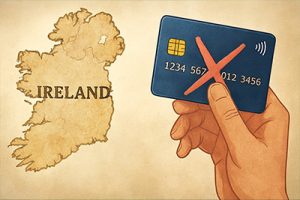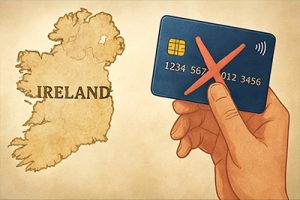
A new measure to support individuals dealing with gambling problems has been rolled out in Ireland, giving bank customers the ability to voluntarily block their debit cards from being used on gambling websites and apps. The initiative has been developed as part of a collaborative effort between the Gambling Regulatory Authority of Ireland (GRAI), the Irish Banking Culture Board (IBCB), and the country’s three major retail banks — AIB, Bank of Ireland, and PTSB.
The framework, referred to as the Common Commitment of Care for Problem Gambling, is designed to provide accessible and consistent support to those experiencing gambling harm. Under the system, customers can request their bank to activate a block that stops their cards from being accepted by gambling operators. Banks are also committing to additional measures such as enhanced employee training, specialized support lines, and partnerships with external advisory services.
Practical Measures and Broader Support
The initiative includes more than just card blocking. Customers will have access to a dedicated phone line, trained staff, and links to outside resources such as Gambling Care’s 24/7 helpline and the Money Advice and Budgeting Service (MABS), which offers free debt and budgeting advice. According to the IBCB, this common standard across Irish banks ensures uniformity of support while reinforcing the role of financial institutions in addressing gambling-related harm.
Marion Kelly, Chief Executive of the IBCB, emphasized the importance of the initiative: “Problem gambling can cause serious harm to individuals, families and communities. IBCB member banks recognise their responsibility to respond with compassion and practical support when customers reach out for help. This Common Commitment of Care ensures that anyone experiencing gambling difficulties will find clear, accessible supports to assistance through their bank.”
She added that the voluntary card block, already adopted by AIB, Bank of Ireland, and PTSB, represents an important step forward, while calling on other financial institutions to adopt similar safeguards.
Study Highlights the Scale of Online Gambling
The timing of the initiative follows research showing that most gambling activity in Ireland takes place online, with 90% of transactions occurring digitally and 99% of these being funded by debit cards. This heavy reliance on card payments was identified as a key reason behind the push for a system that can cut off gambling at the source.
Barry Grant, project manager of Extern Problem Gambling, welcomed the measure, noting its potential impact: “The blanket blocking is massive. It’s just a switch – all gambling is blocked. Some of our service users would have dozens of online gambling accounts or apps, but they generally have one bank account. If you can cut it off at source, that’s massive.”
This view was echoed by Oisín McConville, a former Armagh footballer and ambassador for Gambling Care, who has previously spoken about his struggles with addiction. He pointed out that people typically only seek help when they are already in crisis. “Ninety-nine per cent of people that come forward for help as far as gambling is concerned are in crisis, financially and every other way,” McConville said, adding that cutting off digital access can provide a vital barrier.
Political and Regulatory Support
The initiative has also received backing from government representatives. Junior Finance Minister Robert Troy described it as an “important step” in the banking sector’s role in combating gambling-related harm. He highlighted that the government’s broader objectives — including the Gambling Regulation Act and the establishment of the GRAI — require close cooperation between regulators, financial institutions, and support organizations.
The IBCB, which is not a regulatory body, acts as an independent advocate for cultural change within Ireland’s banking sector. Its membership includes senior executives from banking and financial services, alongside representatives such as a former judge and the Financial Services Union’s general secretary John O’Connell. The organization’s stated purpose is to help build public trust in banking through initiatives like this one, which directly tackle pressing social issues.
The Common Commitment of Care is set to be formally launched at an event in Dublin, marking a significant new chapter in Ireland’s ongoing efforts to reduce gambling harm and provide reliable avenues of support for affected individuals.
Source:
“Move to enable people to block debit-cards to cut off access to online gambling welcomed“, irishtimes.com, September 19, 2025.

